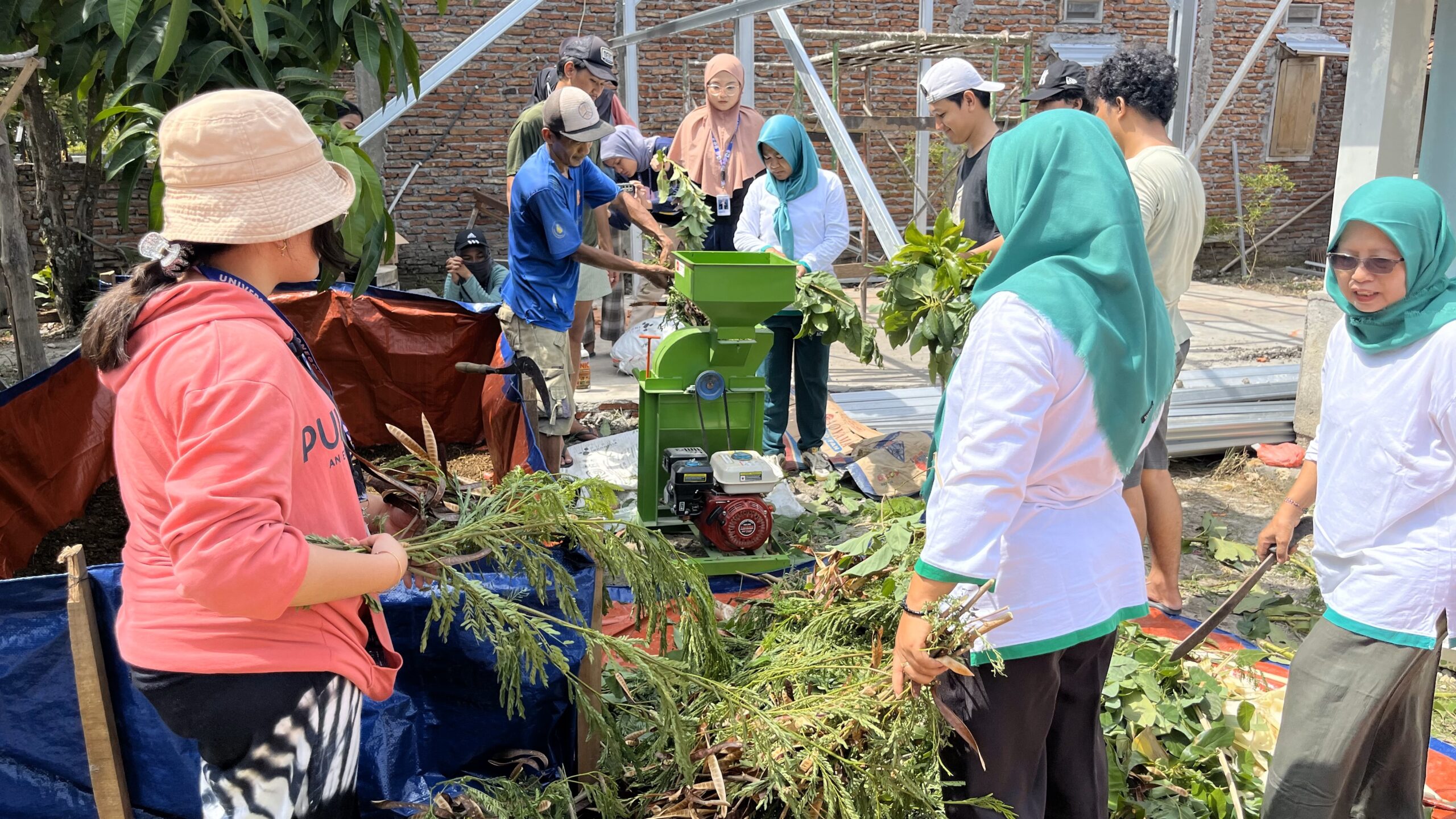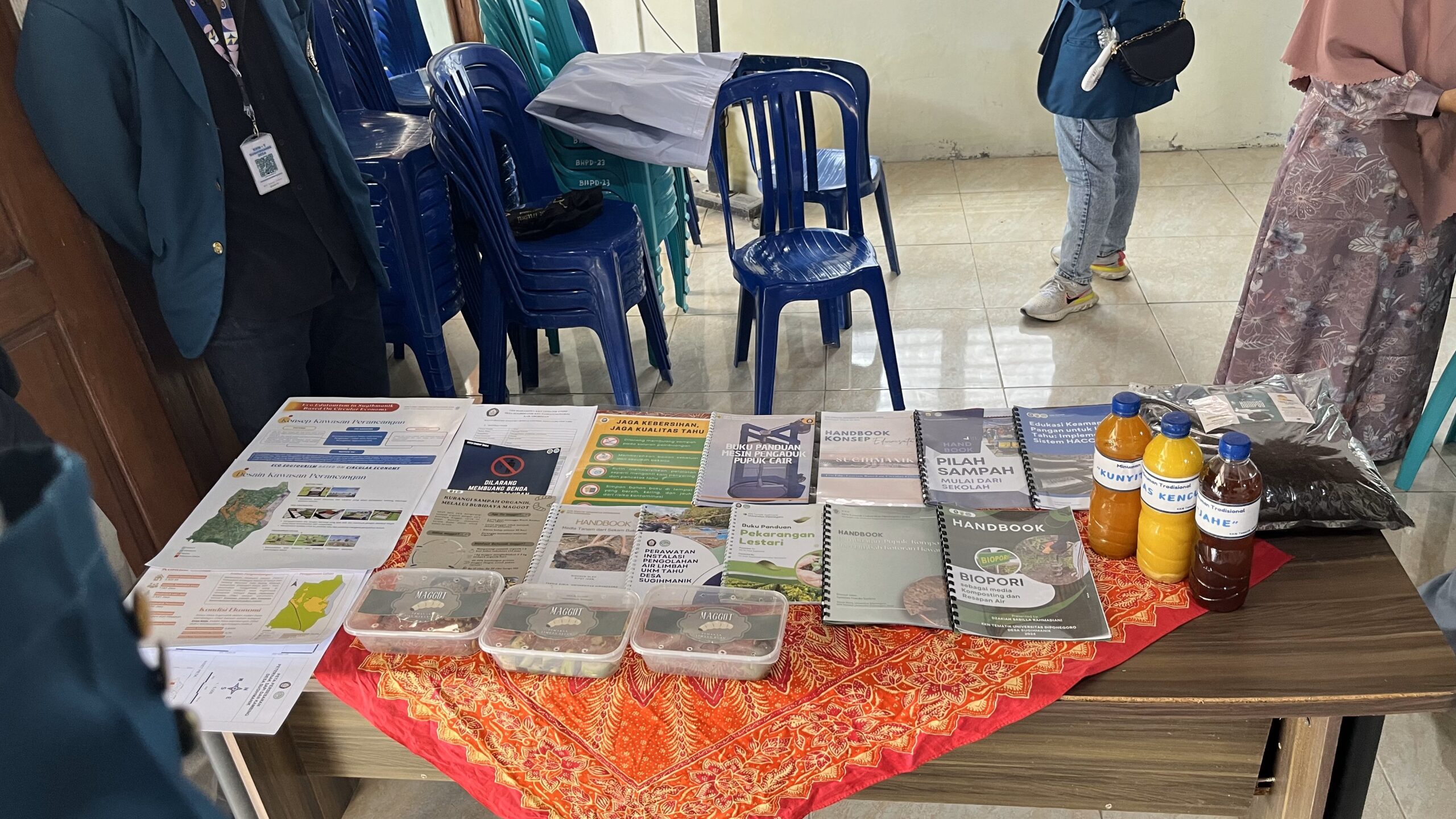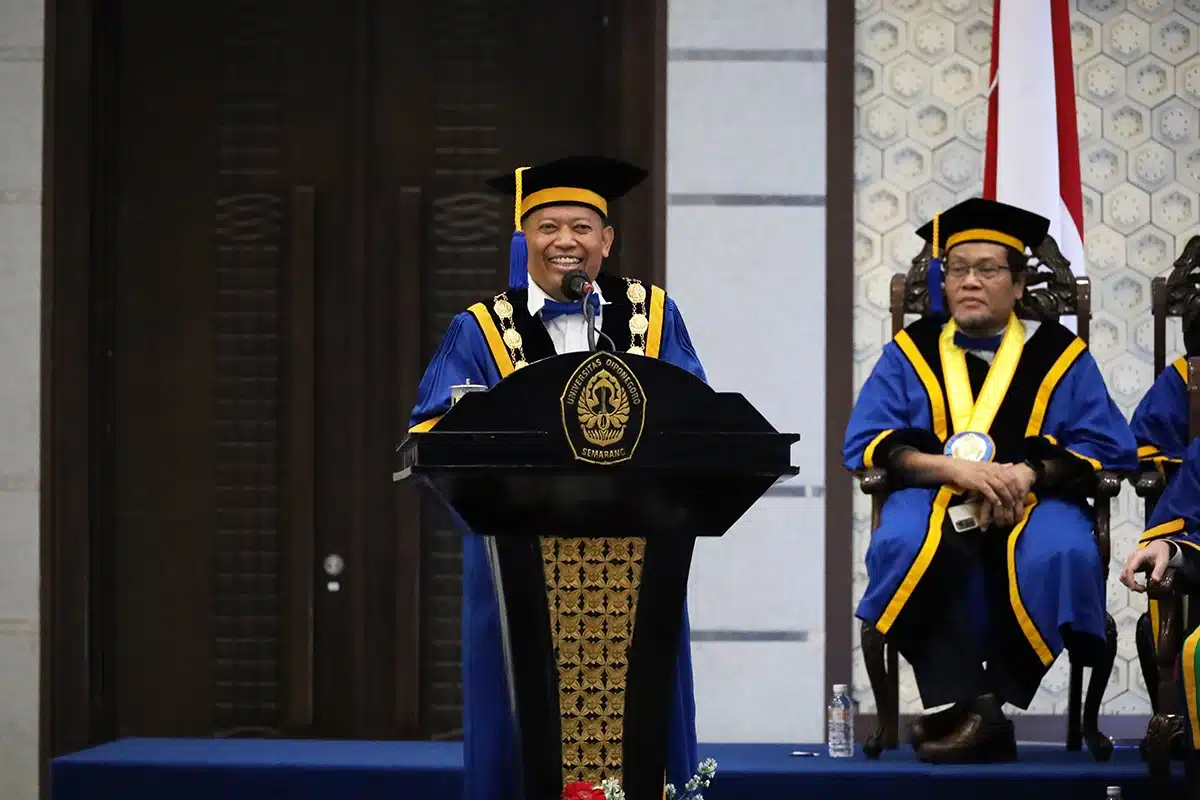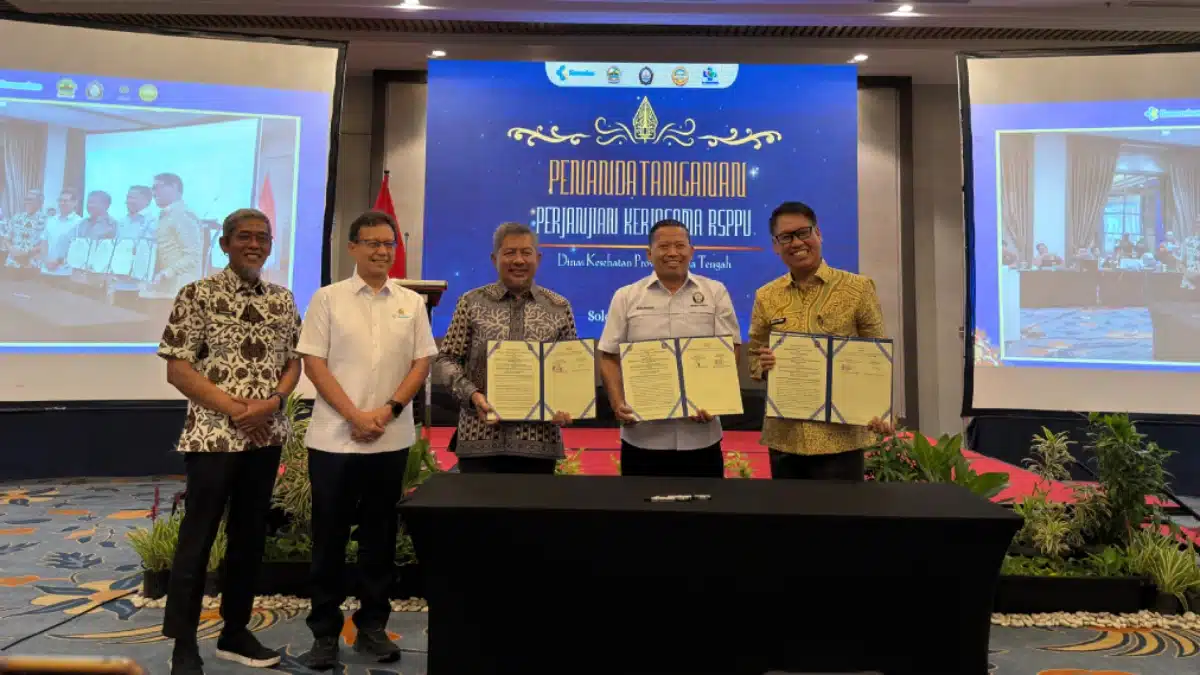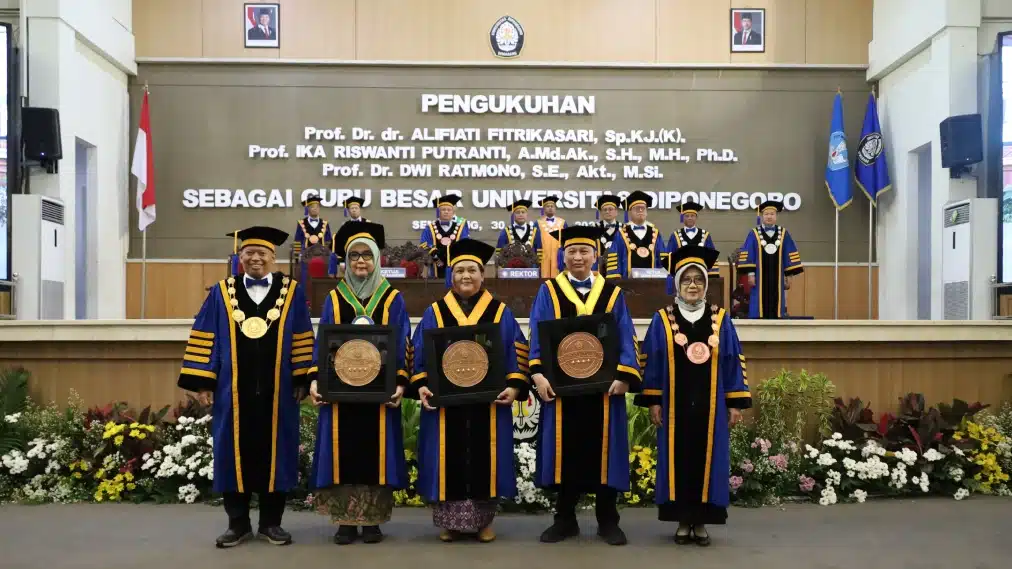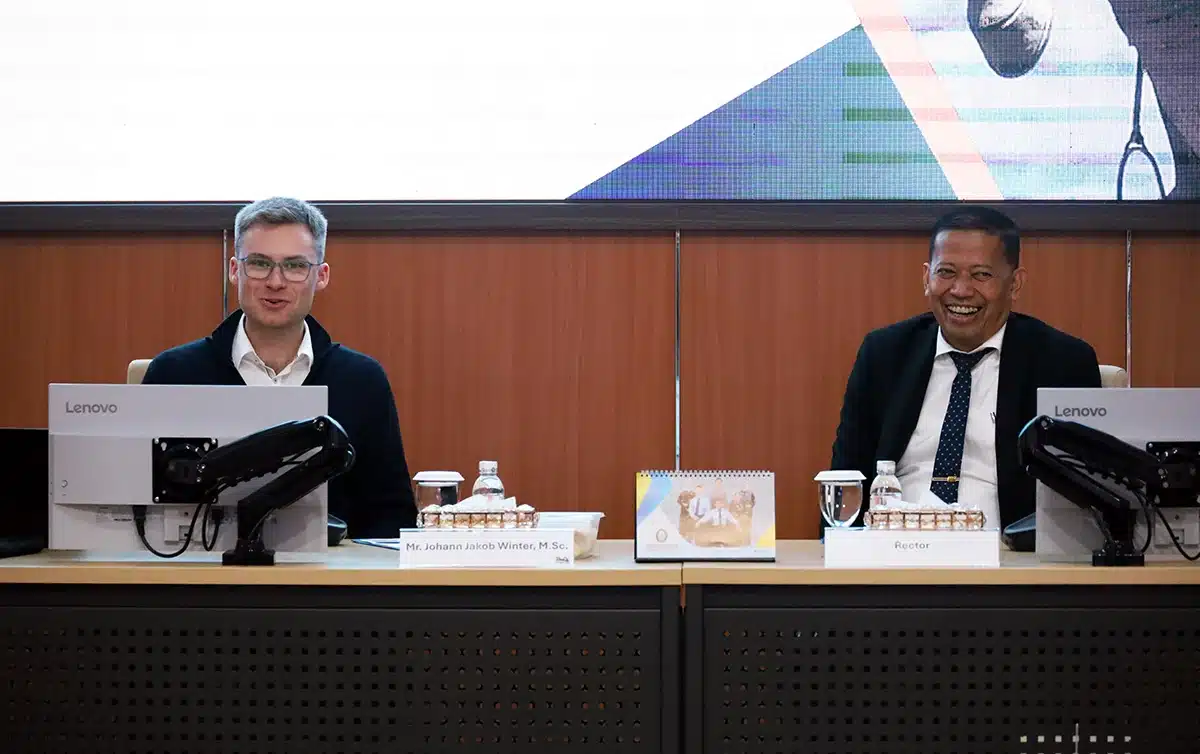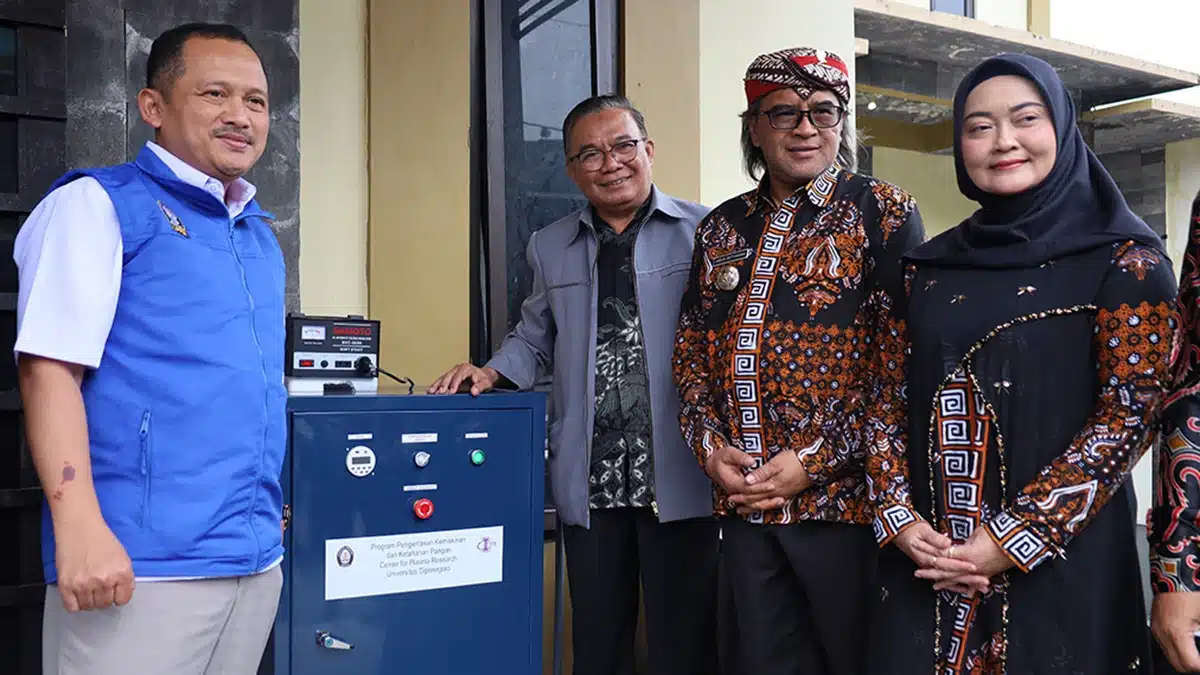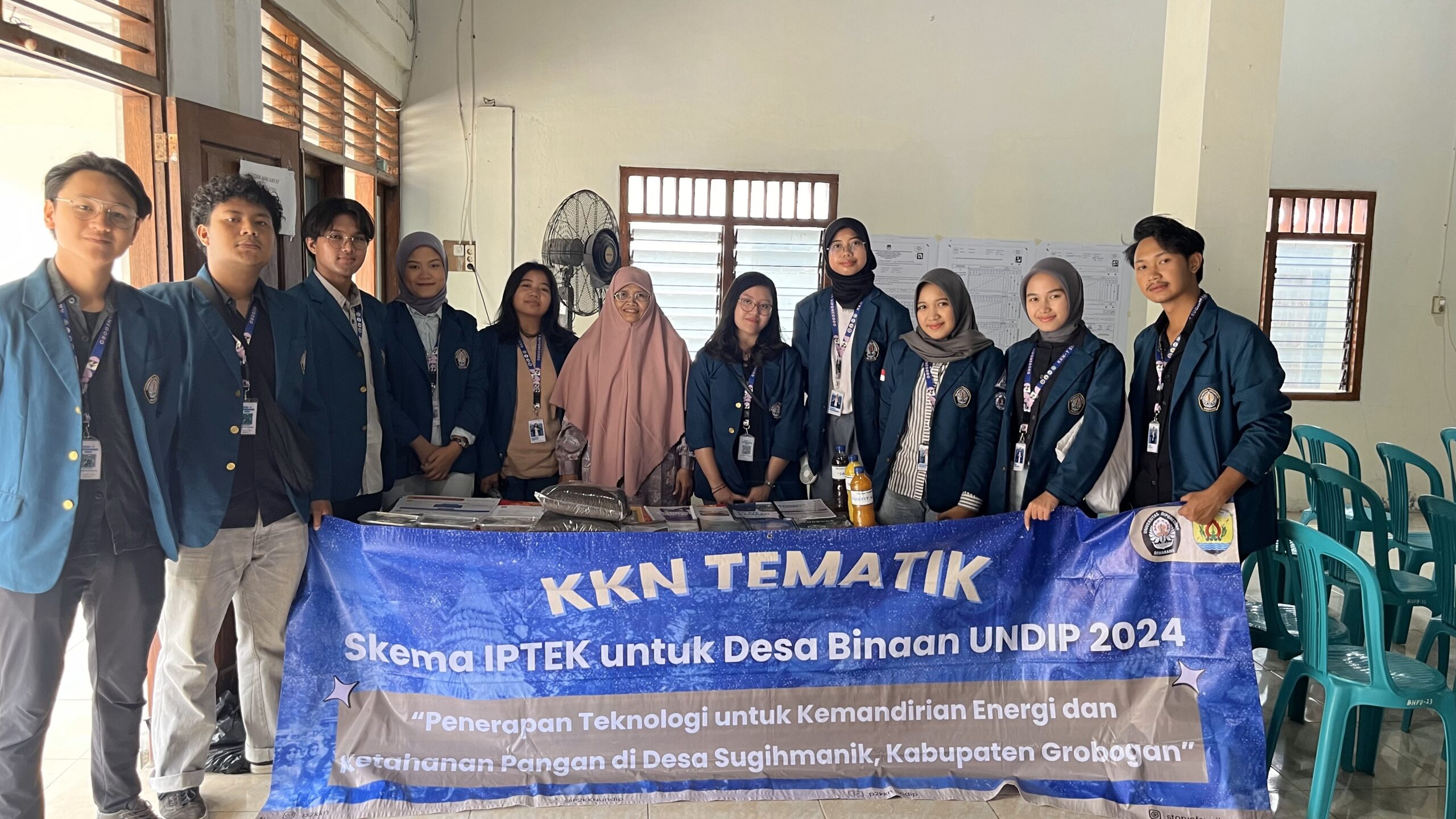Sugihmanik Village, located in Tanggungharjo Subdistrict, Grobogan Regency, has significant potential to support the local economy through innovative management of local resources. The village is renowned for its 30 small and medium enterprises (SMEs) producing tofu, organized under the Paguyuban Ngudi Mulyo, collectively processing up to 4,000 kilograms of soybeans daily. However, the high production volume also generates liquid waste, with only 20 SMEs currently benefiting from a Wastewater Treatment Plant (Instalasi Pengolahan Air Limbah / IPAL) established in collaboration between Universitas Diponegoro (UNDIP) and the Grobogan Regency Government. The remaining liquid waste continues to pollute the environment, mainly rivers.
The village also holds great potential for managing livestock waste. With 48 goat farmers and 20 cattle farmers, the potential for solid livestock waste (manure) exceeds 3 tons per year, while liquid waste in the form of livestock urine reaches approximately 12,000 liters annually. However, a 2024 UNDIP Thematic Community Service (Kuliah Kerja Nyata Tematik / KKN-T) survey found that only 25% of livestock waste is being optimally managed.
To address the challenges of livestock waste management, the KKN-T UNDIP team is committed to supporting the Sustainable Development Goals (SDGs) in Sugihmanik Village. Through the UNDIP Science and Technology for Fostered Villages (Iptek untuk Desa Binaan UNDIP / IDBU) program, 12 KKN-T students developed various waste management innovations as solutions to achieve food security and environmental sustainability.
Some of the innovative programs implemented include:
- Processing tofu liquid waste into liquid organic fertilizer.
- Converting livestock manure into compost.
- Utilizing burnt husks from tofu SMEs as planting media.
- Cultivating maggots using protein-rich sludge from tofu WWTPs as poultry and fish feed.
These innovations are utilized for sustainable yard programs and the development of Family Medicinal Plants Gardens (Tanaman Obat Keluarga / TOGA), and they are distributed through greenhouse assistance facilitated by the Grobogan Regency Government.
A Focus Group Discussion (FGD) was held with the aim of optimizing the program, involving stakeholders such as Bappeda of Grobogan Regency, village officials, PKK women’s group, SME associations, livestock groups, waste banks, and PT Semen Grobogan. The discussions focused on strategies for implementing circular economy-based technology innovations with a sustainability focus.
Additionally, the IDBU team and KKN-T students led by Prof. Dr. Sri Hartini, S.T., M.T., along with UNDIP lecturers Dr. Diana Puspita Sari, S.T., M.T.; Cahya Setya Utama, S.Pt., M.Si.; and Faradhina Azzahra, S.T., M.Sc., have established a Living Laboratory in the form of a Maggot House on the IPAL site to transfer knowledge to the community. This concept promotes a circular economy and positions Sugihmanik Village as an educational tourism destination.
Through its circular economy-based tourism programs, Sugihmanik Village is expected to grow into a tourism village that promotes environmental sustainability and food security. “We are optimistic that processing waste into economically valuable products can enhance community welfare and establish Sugihmanik Village as a model of sustainability,” said Prof. Sri Hartini.
This initiative not only reduces environmental impact but also sets Sugihmanik Village as an example of local-level circular economy implementation. (SH-DTI; ed.DHW)

